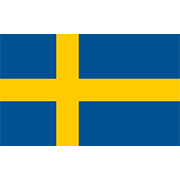Fiscal subject related
The control unit and control systems are responsible for storing and signing transactions. When the Tax Authority needs to perform a control, they access data directly from this device. The technical specifications for these devices are predefined, and they must be certified before being marketed.
Control units can be connected to the cash register/POS application in multiple ways, depending on the integration and connection. It can be connected to every cash register in the store or be connected to multiple cash registers and serve as a control point. Also, it can be located outside of the store, which can be very convenient for retailers, since they do not need to have special hardware present in the store besides cash registers, of course. But still, it is a hardware unit with predefined requirements that must be respected, and proper connection with the cash register is under the control of the Swedish tax agency. There are different certified models on the market.
On the other side, there are also control systems for fiscalization in Sweden. They have been introduced by the regulations, but currently there are no approved and certified solutions on the Swedish market. In terms of architecture, they are more complex than the control unit, and it is certainly something that will digitalize and modernize the control device in Sweden in the future. Control systems have their own special and more complex artwork that controls the unit, and it is made like a special server. It can manage more cash registers, and the server can be used by many businesses. It is needed to have software (control program), a unit where payment is managed, a signing module, and a server (safe place—server hall). The information from each purchase will be safely transferred to the server. From the perspective of retailers or taxpayers, we can say that it looks like a cloud, and lots of functions are performed in so-called virtual environments, but still, it is not a fully cloud solution because of predefined requirements, modules, and special secure environments that must be respected to comply with the legal and technical regulations.
Other news from Sweden
The Swedish Tax Agency announces Cash Register exemptions for Lotteries and games of skill at public events.
 Sweden
Author: Nikolina Basić
Sweden
Author: Nikolina Basić
As of January 1, 2026, the Swedish Tax Agency will exempt certain lotteries and games of skill at public events from mandatory cash register reporting. This new regulation applies to specific market traders and includes strict limits on the maximum stake and prize value for games of skill. The Swedish Tax Agency has issued new regulations (SKVFS 2025:6) granting specific exemptions from cash regis... Read more



Sweden e-invoice and ViDA implementation
 Sweden
Author: Nikolina Basić
Sweden
Author: Nikolina Basić
Sweden is preparing for the EU’s ViDA directive by considering a national approach to e-invoicing and digital VAT reporting, with the Confederation of Swedish Enterprise urging a public inquiry. The Swedish Tax Agency has also launched a nationwide survey to gather business feedback, open through June and July 2025. Sweden is preparing for new EU regulations under the VAT in the Digital Age (ViDA)... Read more



Do EV chargers have to respect cash register and fiscalization requirements in Sweden?
 Sweden
Author: Nikolina Basić
Sweden
Author: Nikolina Basić
In Sweden, EV chargers and other unmanned self-service systems are exempt from standard cash register fiscalization requirements. Printed receipts are only mandatory when transactions are processed through certified cash registers, which these systems typically do not use. Read more
Subscribe to get access to the latest news, documents, webinars and educations.
Already subscriber? Login


New document was uploaded: Technical country overview - Sweden
 Sweden
Author: Ištvan Božoki
Sweden
Author: Ištvan Božoki
This document addresses all the technical details regarding the fiscalizaton process in Sweden. In this presentation, we deal with topics such as main features of the fiscal law, control unit, transaction signing, fiscal data, reports, integration, solutions, transaction types, etc. Read more
Subscribe to get access to the latest news, documents, webinars and educations.
Already subscriber? Login


Fiscalization in Sweden: How long should the control unit be kept?
 Sweden
Author: Nikolina Basić
Sweden
Author: Nikolina Basić
In Sweden, fiscal control units must be retained for at least 12 months after a cash register is sold, scrapped, or replaced, ensuring access to historical transaction data. These devices must store five years of data and cannot be emptied, with strict rules governing replacement and preservation to maintain compliance and transparency. Fiscalization rules in Sweden require the usage of a... Read more



Fiscal requirements in Sweden: How should the manufacturing number be specified for cash registers?
 Sweden
Author: Nikolina Basić
Sweden
Author: Nikolina Basić
In Sweden, each cash register must have a unique manufacturing number, as required by SKVFS 2009:1, with specific rules for identifying both the software and individual registration units. While ROM- and PC-based systems generally meet these requirements, network-based cash registers must implement an additional numbering system to assign unique IDs to each unit. Read more
Subscribe to get access to the latest news, documents, webinars and educations.
Already subscriber? Login


End of intra-model European electronic invoice and new rules introduced
Starting July 1, 2030, the EU will eliminate the Intra models for VAT reporting, replacing them with mandatory electronic invoicing under Directive 516/2025. The new system, part of the VIDA 2030 Package, will require businesses to issue standardized e-invoices for all intra-EU B2B transactions, with data transmitted to VIES for cross-border VAT monitoring and fraud prevention. This shift aims to... Read more


